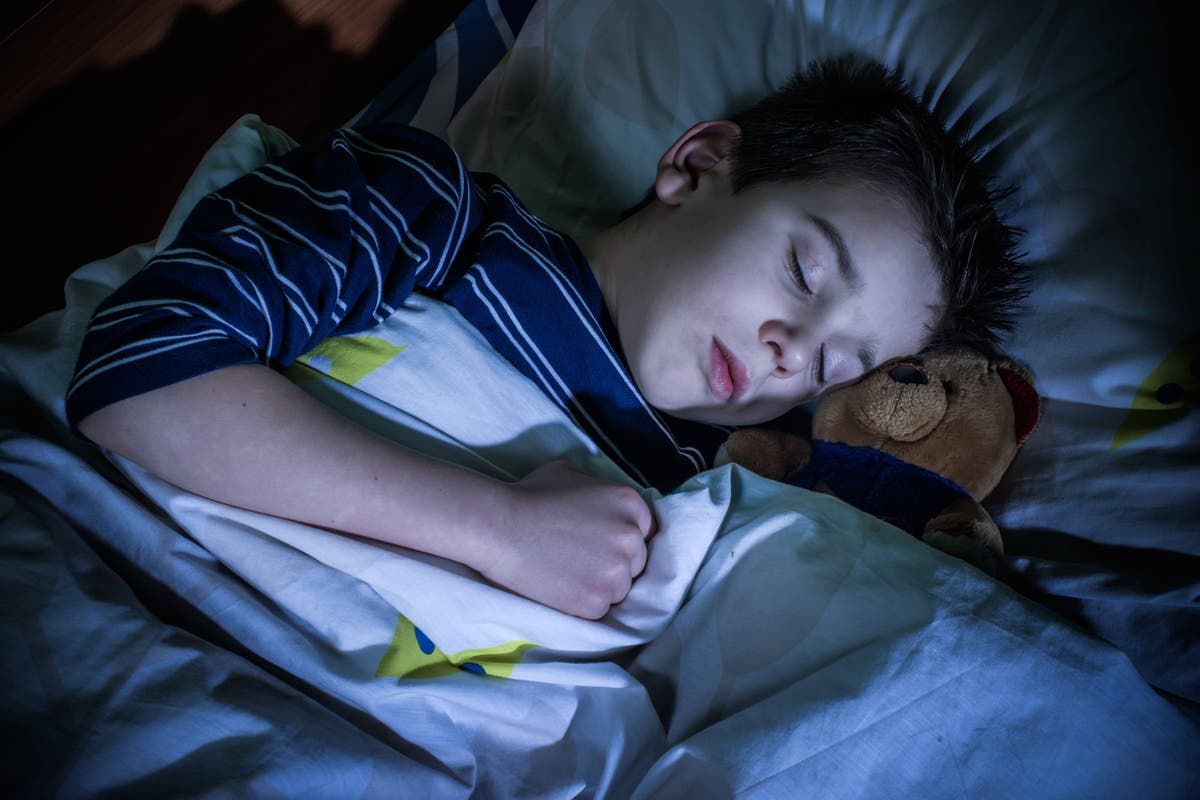Truly support
independent journalism
Our mission is to provide unbiased, fact-based reporting that holds the powerful to account and exposes the truth.
Whether it's $5 or $50, every contribution counts.
Support us in offering journalism without agenda.
Most parents are aware that routine is an important part of parenting and that routine often goes out the window during the summer school holidays.
Staying up late and sleeping in can cause bedtime routines to become a casualty of the summer holidays, and this disruption is likely to have a negative impact on children's sleep.
And while that doesn't matter too much when they have nothing to get up for, it will benefit them to be well-rested for the start of the new school term, which means their bedtime routines will need to be reset.
“During the summer holidays, sleep routines may be more relaxed, and this is absolutely fine as long as they are getting enough sleep,” says infant and baby sleep consultant, Andrea Grace.
“But when children return to school and their days become more structured, they need their bedtimes to be more regular and structured as well.”
And Lisa Artis, deputy chief executive of The Sleep Charity, adds: “Preparation is key when it comes to going back to school. The summer holidays are a fun and exciting time for children, but they can be very disruptive to bedtime routines.
“Young people don’t always take sleep seriously, so we encourage parents to create a bedtime routine before returning to school in the coming weeks. It can take time to reestablish a routine, so small changes implemented over the course of a week or so can help your child get back into a healthy sleep routine.”
Here, sleep experts outline the best ways to get your child's bedtime routine back on track before he or she heads back to school…
1. A few minutes less
Artis notes that toddlers need 10 to 11 hours of sleep a night, and older children need about nine. “Getting your child to sleep for this long may not be a problem, especially if you have teenagers,” she says. “But their bedtime may have been getting later and later over the holidays, and if that’s the case, it’s a good idea to push their bedtime back in small increments of about 15 minutes for several days until it gets back to normal.”
2. Change your wake-up time too
If your child has been going to bed much later and has been gradually going to bed earlier (a week before school starts), Grace says parents should wake them up early, too. “Wake them up at 8 a.m. at first, but then gradually get them to bed earlier until they are at the time they would normally have to get up for school,” she advises.
3. Don't worry if your child's bedtime hasn't changed much
Grace says that if your child is used to going to bed an hour later than usual, it's okay to hold off on changing their bedtime until closer to the holidays. “It's okay to start putting them to bed at their normal time over the weekend before they go back to school,” she says. “During this weekend, wake them up at the time they should be getting up for school.”
4. Encourage outdoor play, but call them a little early
If your kids are spending a lot of time outdoors over the holidays, that's great because, among other benefits, one of the best ways to improve a child's sleep at night is to expose them to daylight, especially in the morning, says Grace. She explains that the contrast between the brightness of the day and the darkness of the night helps them produce healthy levels of melatonin, the hormone responsible for making them sleepy at night.
However, Artis suggests calling children a little earlier when the new school term approaches so they can come home after playing outside. “This helps prevent them from becoming overstimulated at bedtime,” she explains.
“An alternative would be to go for a walk with them in the afternoon to help the food settle and expel the excess energy they have accumulated during the day; this will be especially useful on days when they spend in front of the television.”
5. Turn off the screens early
Grace says all screens should be turned off at least a half-hour before bedtime, and TVs and computers should be kept out of kids’ bedrooms. “Ask them to leave their phones out of the bedroom,” she says, “and if they can’t, at least put them on night mode or silent.”
Artis explains that screen time should be limited before bed, because blue light can inhibit melatonin. “Instead, try a calming activity that uses your child’s hand-eye coordination, such as coloring, fidget toys, or a puzzle,” she suggests. “A good old-fashioned bedtime story never hurts for little ones.”
6. Watch what they eat and drink
Grace warns parents to make sure their children avoid fizzy drinks, energy drinks, chocolate or other foods containing stimulants, especially just before bedtime.
7. Start talking
Many young people don’t see the importance of sleep, Artis says, so talking to them about it can help them build their own healthy relationship with sleep. “Sleep helps our bodies rest and our brains recover, and a good night’s sleep will give them more energy to spend time with friends, be more alert with their video games, and generally feel happier,” she says.
8. Never forget how important routine is
Grace says that around two-thirds of children don’t get enough sleep and that getting them into a regular bedtime routine is key to improving this. “Good sleep impacts their health, behaviour, friendships and learning,” she says. “Everyone in the family benefits when children sleep well, especially the children themselves.
“A familiar set of steps before bed, including a warm bath or shower immediately before bed, will help them sleep well,” she advises, adding: “If everything seems to be going down the drain, you’re not alone: thousands of families let their children’s routines fall by the wayside during the holidays. But it’s a nice feeling when you get that structure back.”












